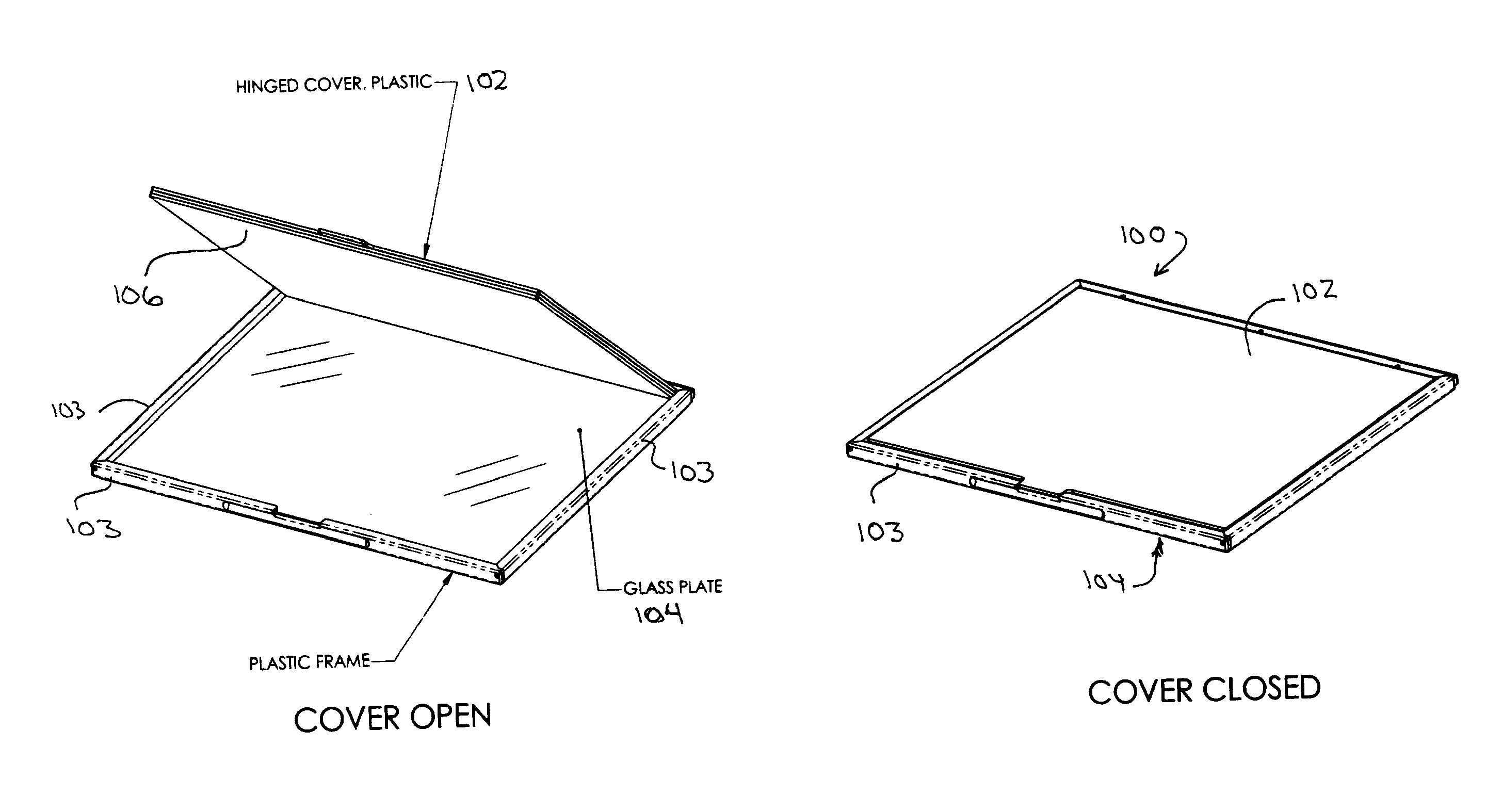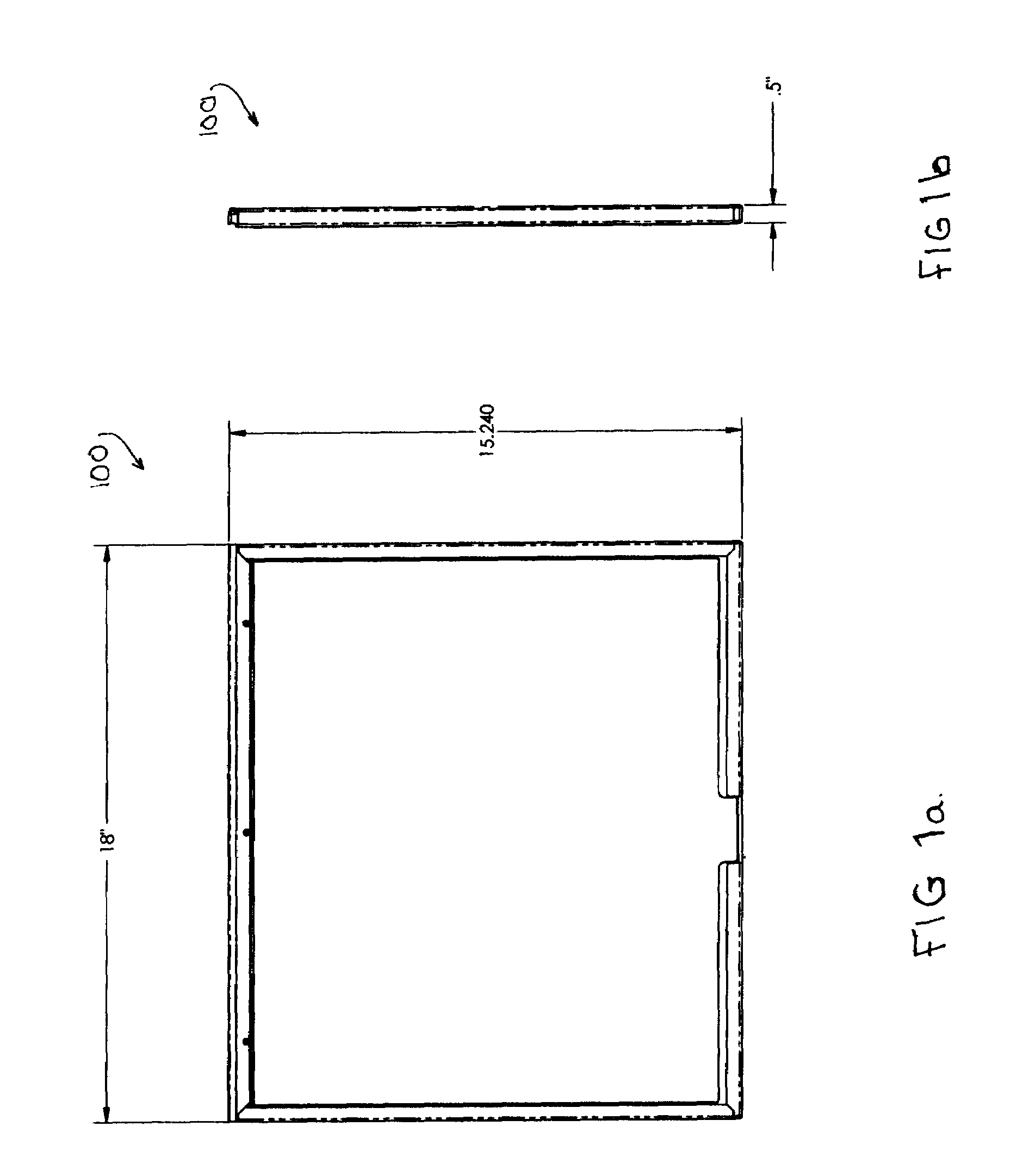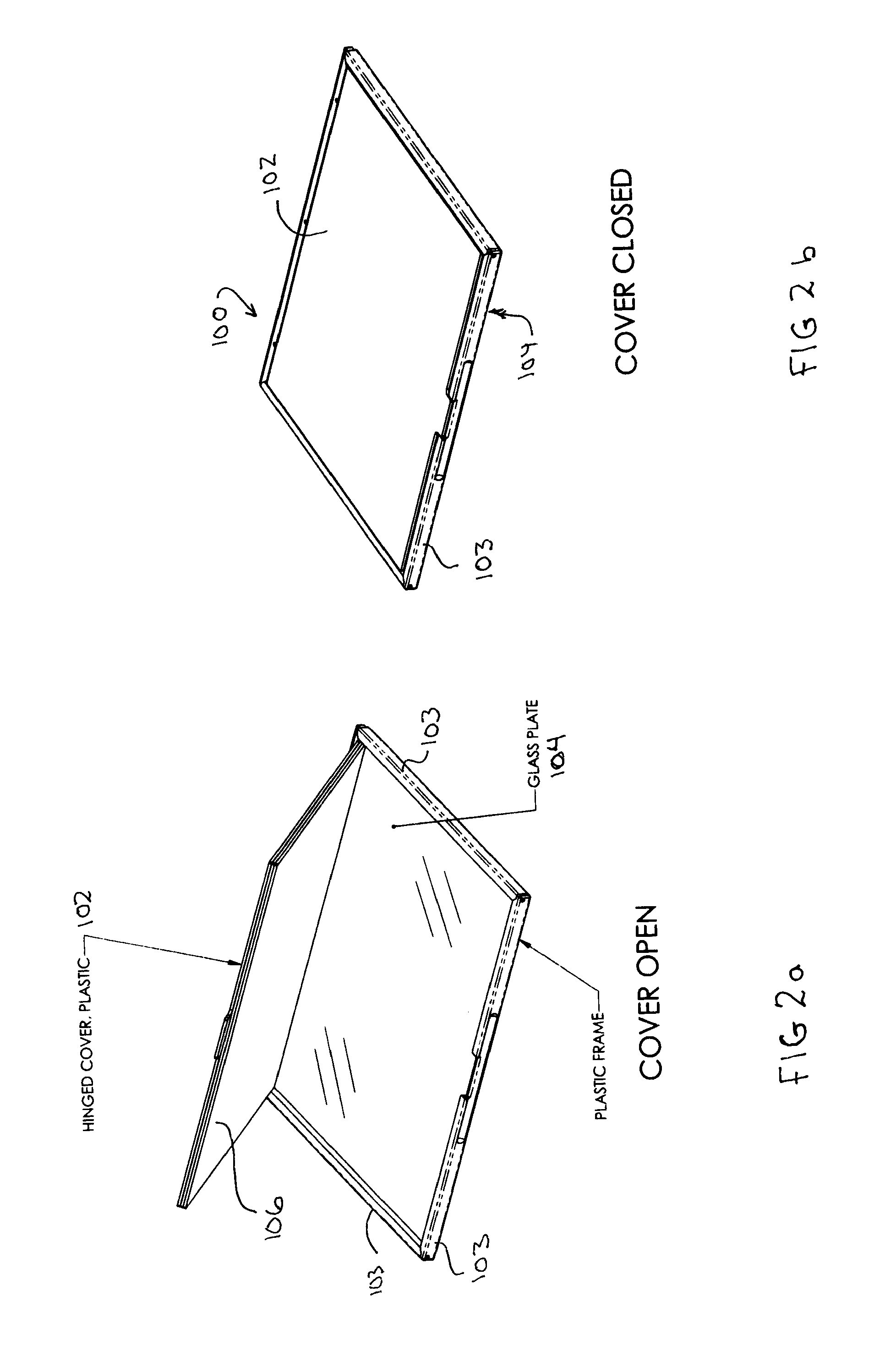Glass cassette for scanning imaging plates
a scanning imaging and cassette technology, applied in the field of xray cassettes and computed radiography, can solve the problems of limited reusability, increased wear and tear of the plate, and degradation of the quality
- Summary
- Abstract
- Description
- Claims
- Application Information
AI Technical Summary
Benefits of technology
Problems solved by technology
Method used
Image
Examples
Embodiment Construction
[0022]Existing CR cassette designs and methods include a CR scanning cycle of a rigid, flat cassette and imaging plate assembly without requiring the removal of the imaging plate from the cassette. In this design, the CR cassette is opened during the scan process to allow access to the imaging plate. This generally creates a precise, flat read cycle of the imaging plate limited only by the precision of the drive mechanism employed to open and move the cassette past the scan head. In this preferred scan process, nothing touches the surface of the phosphor plate and the imaging plate is kept flat over the area being scanned. As the cassette passes the scanning head of the CR, at least one side of the cassette is opened, exposing the imaging plate. This creates a scan cycle that reduces wear on the phosphor material of the imaging means, greatly enhancing the lifetime of the imaging means and improves the quality of the read cycle. In addition, the scan time is much reduced because the...
PUM
 Login to View More
Login to View More Abstract
Description
Claims
Application Information
 Login to View More
Login to View More - R&D
- Intellectual Property
- Life Sciences
- Materials
- Tech Scout
- Unparalleled Data Quality
- Higher Quality Content
- 60% Fewer Hallucinations
Browse by: Latest US Patents, China's latest patents, Technical Efficacy Thesaurus, Application Domain, Technology Topic, Popular Technical Reports.
© 2025 PatSnap. All rights reserved.Legal|Privacy policy|Modern Slavery Act Transparency Statement|Sitemap|About US| Contact US: help@patsnap.com



